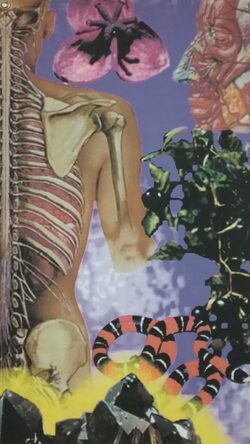What is Homeopathic Medicine?
What is it?
How can it help me?
Homeopathy is a 100+ year old form of treating illness. Samuel Hahnemann, MD developed it when 19th century medicine was not effective enough in treating his patients. Our own Hahnemann University was named after Dr. Hahnemann and used to be a Homeopathic learning institution. Before Dr. Hahnemann, there was no allopathic medicine because he coined that name as a distinguishing feature between the current medical ideology and his own.
Whereas allopathic medicine is designed to palliate a patient’s symptoms, homeopathic medicine is designed to cure a patient’s illness.
Whereas allopathic medicine usually treats with a substance that has the opposite physiological effect of the patient’s symptoms, i.e. treating stomach acid with antacids, homeopathic medicine treats with a substance that would cause similar symptoms in a healthy individual. For example, water hemlock poisoning causes ascending paralysis; homeopathic water hemlock is used to cure ascending paralysis. How can water hemlock be used to cure anything when it is so poisonous? The answer is simple. Crude water hemlock is not the homeopathic remedy. Before a substance can qualify as a homeopathic remedy, it is highly processed.
The general processing includes dilution and sucussing (or pounding). The diluting process weakens the substance; the pounding energizes the weakened substance. Most substances used are pounded or energized so much that chemically there is no evidence of the substance left, only its essence. Hahnemann had an amazing understanding of Einsteinian physics long before the rest of us.
The theory of homeopathic practice is as follows. Any symptom pattern or disease state has its own essence. (This idea is presently used in mapping voice patterns, DNA screening, etc.) The correct homeopathic remedy that will cause a curative response in the patient has a similar essence to the symptom pattern. However, the remedy is energetically stronger than the disease. When administered, it alerts and stimulates the immune system specific to that essence and a curative process begins.
The curative response often begins with a temporary exaggeration of symptoms. This is a tough concept to accept because we are used to allopathy in which the correct medicine will quickly begin alleviating symptoms so we feel “better” more quickly. After the initial aggravation, (if it occurs), a general sense of well being begins and symptoms begin to recede.
Now that we have explored the definition of Homeopathy, its origins, how it is made, and what the curative process is like, now it’s time to discuss who can benefit from this health discipline. With homeopathic medicine, we treat people, not dis-ease. We treat the person who has the dis-eased state. Whether the state is a disorder of mental processes (dullness of thinking, forgetfulness), emotional (anger, fear, depression), or physical, it is treatable.
The reason we treat the person is that each individual arrives at the dis-eased state from a different origin. For example, let’s consider constipation. It can come from a diet very low in fiber and/or water. It can also come from a fearful state that stopped all physiological function. It can even have started during toilet training if you were hurried. Each of these would require a different solution.
If you study the homeopathic repertory, (a book of thousands of symptoms), there are over a hundred remedies that can treat constipation.
The homeopathic practitioner must take a careful case history and explore all about the patient’s nature. Somewhere will exist the cause of the constipation. Then and only then will a homeopathic remedy assist in the healing of the bowel.
Of course the same mind set which manifested the constipation may have created habits that contribute to maintaining the unhealthy bowel. These habits, e.g. low fiber diet, insufficient water, insufficient exercise, etc., must also be addressed for an effective cure. If you are struggling with some dysfunction which in modifying your lifestyle “should” change but isn’t, homeopathy may be an answer to resolving that health matter.
Many people find great relief in utilization of homeopathic medicine for acute conditions. Examples are arnica for bruises induced by trauma, calendula for healing of burns and/or open wounds.
I hope that this information will start a thought process about your own health. If you feel stuck with a particular ailment, be it mental, emotional, or physical, perhaps homeopathic medicine can assist you in experiencing a healthy, more joyful life.

